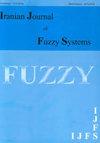(2012-6338)基于直觉模糊语言术语的验收抽样方案设计与分析
IF 1.2
4区 数学
Q1 MATHEMATICS
引用次数: 8
摘要
验收抽样计划(asp)在预先确定的计划内,对大量产品中的一小部分产品进行检验,以在时间、精力和被检验产品的损坏方面以最小的成本获得一定的输出质量水平。虽然传统的asp使用清晰的计划参数,但来料的质量特性或对检验过程的人工评估可能包含不确定性,并且在实际问题中可能并不总是定义为清晰的值。模糊集理论(FST)是将规划参数定义为模糊数来对这些不确定性进行建模的最流行的技术之一。尽管传统的模糊集具有诸多优点,但其灵活性不足以对各种不确定性进行建模。例如,它有一些缺点,因为它根据缺陷或非缺陷的条件来定义任何项目的状态,并假设零件没有缺陷,而实际上并没有确定缺陷。FST的新扩展可以提高asp不确定性建模的质量。直觉模糊集(ifs)允许对隶属度的不确定的松弛,并通过这种能力在与人相关的评估中提供更敏感的建模机会。由于asp的检验程序取决于与人有关的判断,因此本研究中使用ifs来定义项目的缺陷程度。本文还设计了基于区间IFSs (ivifs)的asp,并重新定义了asp的一些特征函数,如验收概率($P_a$)、平均样本数($ASN$)和平均总检验($ATI$)。直观的二项分布和泊松分布已经被定义为能够表述asp。此外,用语言术语来表示项目的缺陷,克服了将口头评价结果量化为数字测量的困难。$alpha$-cut技术与语言方法相结合,允许为不同的产品细分定义多个$alpha$值。最后,给出了一些数值算例来分析所提出的asp的有效性,并对所得结果进行了讨论。本文章由计算机程序翻译,如有差异,请以英文原文为准。
(2012-6338) Design and Analysis of Acceptance Sampling Plans Based on Intuitionistic Fuzzy Linguistic Terms
Acceptance sampling plans (ASPs) offer inspection of a small set of items from a lot within a predefined plan to procure a certain output quality level with minimum cost in terms of time, effort, and damage to the inspected items. Although traditional ASPs use crisp plan parameters, quality characteristics of the incoming items or human evaluations about inspection process may contain uncertainties and may not always be defined as crisp values in real life problems. The fuzzy set theory (FST) is one of the most popular techniques to model these uncertainties by defining plan parameters as fuzzy numbers. Despite the advantages, traditional fuzzy sets are not flexible enough to model all kind of uncertainties. For example, it has some disadvantages because of defining the status of any item based on defectiveness or non-defectiveness conditions and presuming the parts as non-defective whose defectiveness is not indeed determined. New extensions of FST can improve the quality of uncertainty modeling of ASPs. Intuitionistic Fuzzy Sets (IFSs) allow slackness for non-determination about the membership and give more sensitive modeling opportunity in human-related evaluations by the help of this ability. Since the inspection procedure of the ASPs depends on human-related judgements, IFSs have been used to define the defectiveness degree of the items in this study. ASPs based on interval-valued IFSs (IVIFSs) have also been designed and some characteristic functions of ASPs, such as acceptance probability ($P_a$), average sample number ($ASN$) and average total inspection ($ATI$) have been reformulated. Intuitionistic binomial and Poisson distributions have been defined to be able to formulate the ASPs. Additionally, the defectiveness of the items has been represented by using linguistic terms to overcome the difficulty of quantifying the verbal evaluation results as numerical measures. The $alpha$-cut technique has been combined with the linguistic approach to allow defining with multiple $alpha$ values for different product segments. Finally, some numerical examples have been presented to analyze the effectiveness of proposed ASPs and discuss the obtained results.
求助全文
通过发布文献求助,成功后即可免费获取论文全文。
去求助
来源期刊
CiteScore
3.50
自引率
16.70%
发文量
0
期刊介绍:
The two-monthly Iranian Journal of Fuzzy Systems (IJFS) aims to provide an international forum for refereed original research works in the theory and applications of fuzzy sets and systems in the areas of foundations, pure mathematics, artificial intelligence, control, robotics, data analysis, data mining, decision making, finance and management, information systems, operations research, pattern recognition and image processing, soft computing and uncertainty modeling.
Manuscripts submitted to the IJFS must be original unpublished work and should not be in consideration for publication elsewhere.

 求助内容:
求助内容: 应助结果提醒方式:
应助结果提醒方式:


